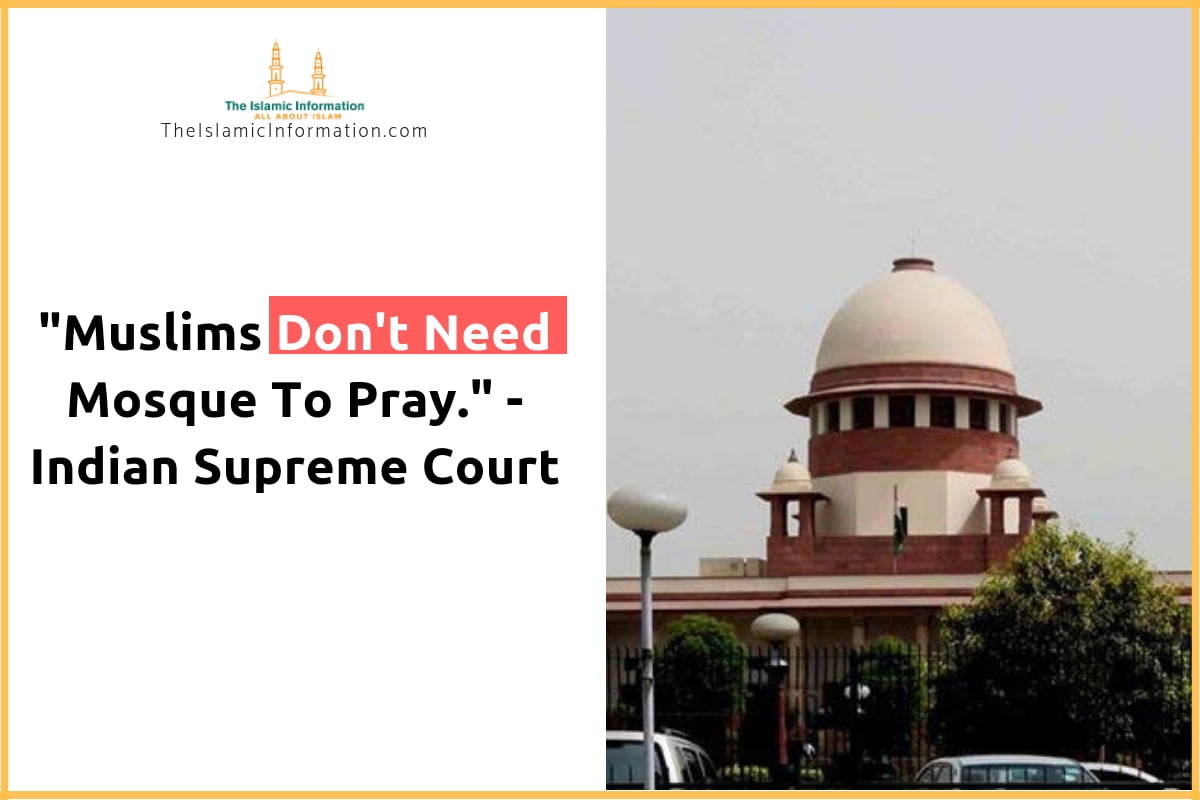Indian Supreme Court dismissed the appeal of the 1994 Supreme Court verdict saying that ‘Place of prayer can be anywhere and it does not have to be a mosque.’
According to Indian Express Indian Express, the 3-member bench of the Indian Supreme Court ruled on the revised appeal of the majority of two, one in 1994’s Ismail Farooq case.
The Indian Supreme Court dismissed the proposal for sending a 1994 case, which made it easier for the court to hear the matter of dispute between Babri Masjid and Ram Temple in Ayodhya.
Justice Ashok Bhushan, Chief Justice Deepak Mishra gave the majority decision, while Justice S. Abdul Wahir disputed this decision.
“The Supreme Court observes that the mosque is not necessary for Islamic teachings, without notice of any research or religious matters,” said the applicant, legal advisor, Muhammad Siddique, Senior Advocate Rajiv Dahanun.
He said that the decision of the present case will be done on its own facts and Ismail Ismail Farooq will not have any effect on it.
It is clear that the Muslim Law Organization had objected to the special bench that the 5-member bench of the decision in 1994 had to be reviewed in a wide range of observations as it would affect the dispute of the land of Babri Masjid and Ram Temple. .
The NDTV report said that a judicial decision means that the case of the dispute between Babri Masjid and Ram Temple in Ayodhya can be taken without delay.
The Indian court has said that the hearing of the Ayodhya case will be held on October 29.
It is believed that in the 1994 judicial verdict it was said that prayer can be paid anywhere and it does not have to be a mosque.
This court verdict was a clear path for the government to get the land of 16th century Babri Masjid.
When talking about the Babri Masjid, 25 years ago, the Babri Masjid was landed 25 years ago, which resulted in killing 2,000 people.
Muslims say that they used to pray in this mosque until December 1949, while some idols were kept in the mosque, the British ruler had prepared for worship to stop conflicts in 1859, while the Indian government in 1949 Her doors were closed.
However, Indian extremists believed that this place is the birth of their Lord Ram.
The Supreme Court rejects the appeal of the apex court to send a revision on the 1994 decision, saying that ‘all religions, mosques, temples and churches are equal’.
The court said that if we see this decision again, it may delay the Ayodhya dispute, although it has no effect on it.


 WhatsApp Channel
WhatsApp Channel
 Instagram
Instagram
 Facebook
Facebook
 X (Twitter)
X (Twitter)
 Google News
Google News